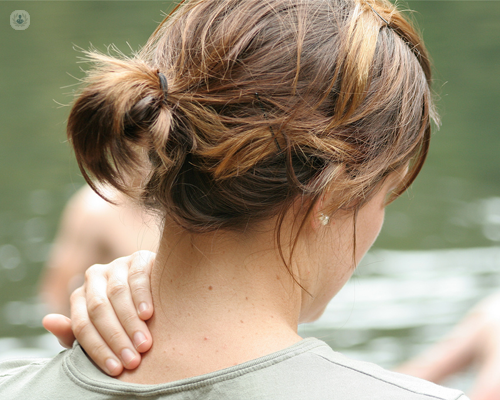

What is it?
Costochondritis is a painful condition caused by the inflammation of the cartilage that joins the upper ribs with the rib cage. The condition causes chest pain, and while it is painful, it is relatively harmless and the pain often goes away on its own without treatment.
What are the symptoms?
The main symptoms are chest pain (usually between the fourth, fifth and sixth rib), although it can also affect the abdomen or the back. The pain, which is very often caused by the numbness, is diffused and mainly affects the left side of the chest. It can worsen with upper body movements, coughing or deep breathing.
What are the causes?
- Chest injury: usually provoked by an impact while practicing sports (rugby, football…)
- Arthritis: rheumatoid arthritis and psoriatic rheumatoid, spondylitis
- Bacterial infections: tuberculosis, syphilis, candida, salmonella, aspergillosis and other infections affecting the respiratory system
- Physical activity: persistent cough, lifting heavy objects
- Tumours: breast, thyroid or lung cancer
- Fibromyalgia: pain and increased muscular stiffness affecting the musculoskeletal system.
 Fibromyalgia can be a cause of costochondritis
Fibromyalgia can be a cause of costochondritis
What is the treatment?
Costochondritis can be treated with: non-steroidal anti-inflammatory drugs, rest, alternation of hot and cold packs over the affected area, and physiotherapy.
What specialist should you visit?
Pay a visit to your GP, who can refer you for specialist treatment if necessary.
